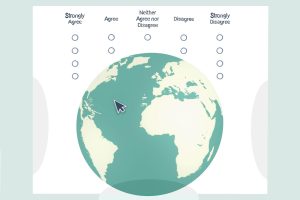Stop unnecessary expansion
April 11, 2023
In early March, Texas Senator Brandon Creighton filed a bill to make The Civitas Institute into The Civitas School of Civic and International Leadership at UT. Creigton’s bill, SB 2030, would establish the new school by Jan. 15, 2024. The bill specifies that the school must house at least 15 tenured positions, with the goal of “educat(ing) future civic leaders through the study of the ideas, institutions, and practices that sustain free societies.”
The Civitas Institute should not be turned into a college because it is unnecessary and will swallow up funds UT could allocate elsewhere.
The Civitas Institute “prepare(s) civic-minded leaders through the study of the ideas and institutions that sustain a free society.” The center is extremely new – launched in July 2022. It heavily emphasizes individuals rights and civic virtue; constitutionalism and the rule of law; and free enterprise and markets.
“The Institute is perhaps offering a venue to bring additional speakers and points of view to campus, and as an addition to what we already do, that could be helpful,” said Jeremi Suri, the Mack Brown Distinguished Chair for Leadership in Global Affairs and Professor of History and Public Affairs at the LBJ school.
Having only been established last year, the Institute’s goals are not yet fully realized. Civitas just recently appointed its Director, Professor Justin Dyer, this June.
“I do not believe it should be made into a college now. Because the Institute has only just been created,” Suri said. “We haven’t even seen much of its work yet …We should let the institute undertake its work for a few years and then assess.”
Merging this institute into a brand new college is incredibly repetitive because UT is already known for its strong government, philosophy and economics programs. While the center can add an interdisciplinary aspect that may be difficult to recreate via individual departments, this is not a compelling enough reason for its transformation.
“My fear is that the Institute, if it’s made into a college, would repeat what’s done in other colleges but create a silo for those who happen to have a different political point of view,” Suri said.
But not everyone believes the college would increase the distance between different perspectives. Some say the institute could allow us to overcome our ideological differences.
Daniel Bonevac is a faculty fellow of the institute and a professor of philosophy and human dimensions of organization. He agreed to be unofficially affiliated with the institute and was chosen to advise it. Although he was enthusiastic about joining as the institute could address the interdisciplinary connection between philosophy, economics, and government, he said he is unsure about the institute’s potential collegiate status.
Currently, Civitas’ departments must approve any hires the institute proposes, allowing greater oversight and avoiding the possibility of leadership developing into something it shouldn’t. This dependence on experts who have experience picking faculty is important to guarantee quality employees.
“(UT does) have a huge number of strengths in individual departments, but a disadvantage of just the size of the University physically as well as just in terms of the number of people is it can be hard to cross those disciplinary boundaries,” Bonevac said.
However, the center itself was created to avoid the ideological struggles that ordinarily arise under political study. This freedom would exist regardless of whether the Center is made into a school, so it’s unnecessary to turn Civitas into an independent entity.
Additionally, keeping the Civitas Institute as is allows an interdisciplinary connection and helps faculty focus on more connected issues rather than being forced to facilitate interdisciplinary thought.
Bonevac also voiced several logistical concerns about turning the center into a school. He worries about the amount of good candidates available – especially with such a short hiring period. Leadership can also change, so the independence of the school is only as viable as its best leaders.
“The other thing is there is a real danger of capture at this university and really, in any institution. Once something grows beyond a certain size, it’s valuable, and people start vying for it and trying to get control of it,” Bonevac said.
The University declined to comment on behalf of the Civitas Institute.
It is highly abnormal for centers to become colleges, and the Civitas center is not a good place to start.
Ultimately, the institute’s value would not meaningfully increase if it becomes a college. Therefore, the Texas Legislature should not pass SB 2030.
Muthukrishnan is a government and race, indigeneity and migration freshman from Los Gatos, California.















